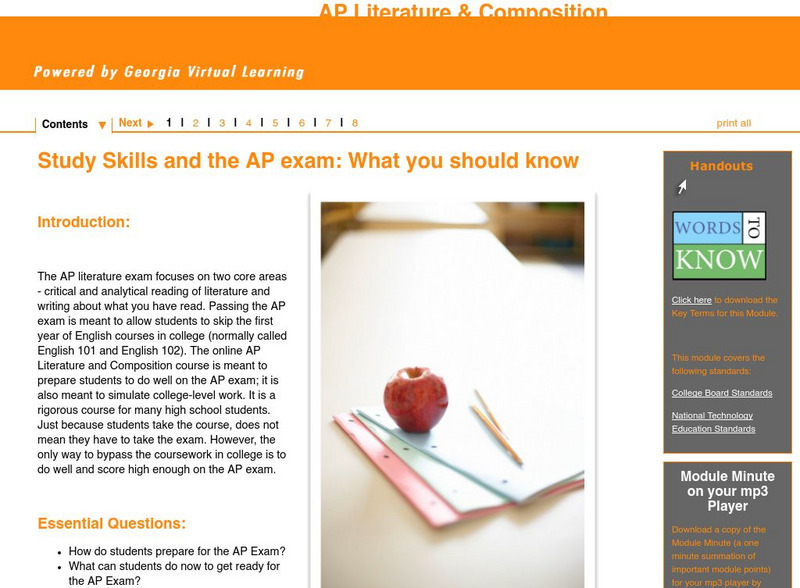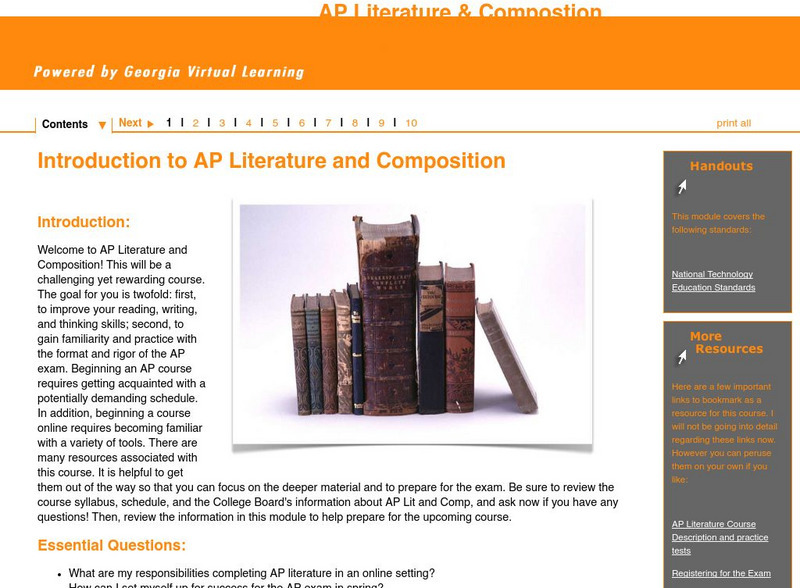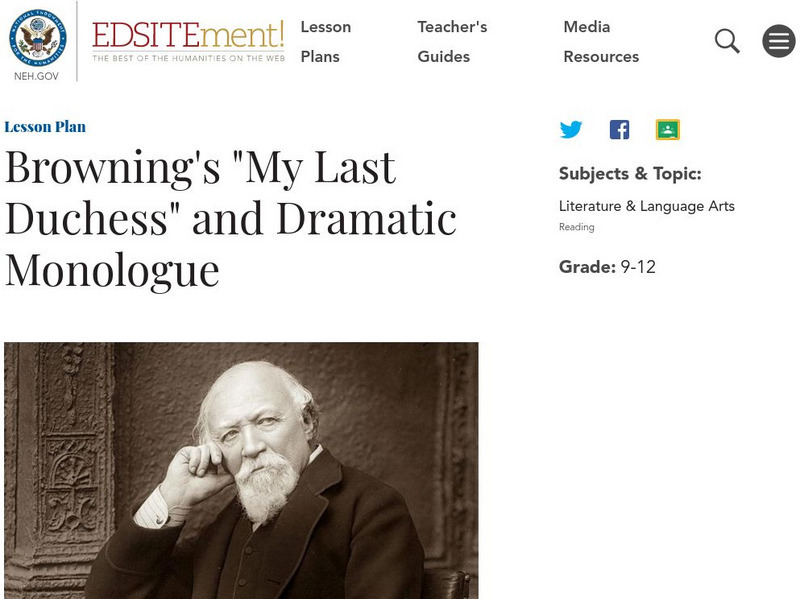Curated OER
"Hamlet": To be or not to be?
This Fun Trivia online quiz asks 10 basic plot questions about Shakespeare's Hamlet. It does not require critical thinking or analysis.
Curated OER
Allusions to Shakespeare in Popular Culture
Send your high schoolers on a scavenger hunt through popular culture (music, television, video games, movies) to find allusions to Shakespeare. They must each provide three to share with the class, and the one they present cannot have...
Curated OER
A Farewell to Arms: Fun Trivia Quiz
A useful resource to use as a check for basic understanding or completion of reading, this quiz tests readers' ability to recall plot information but does not require any critical or analytical reading skills. As with all Fun Trivia...
Curated OER
Voice and James Joyce
After reading a text written by James Joyce, middle and high schoolers find examples of passive voice. They share their findings with the class. Use this lesson to emphasize the effect of passive voice in writing.
Curated OER
Heroes Or Role Models?
Students recognize that "heroes" and "role models" are not synonymous terms. By analyzing heroes of other cultures and periods, they determine that many heroic figures, mythic or historical, rather than providing a model of a societal...
What So Proudly We Hail
A Lesson on Benjamin Franklin’s “Project for Moral Perfection”
Benjamin Franklin identified 13 virtues that he felt would strengthen his character if he could focus on each one. A thorough lesson explores high schoolers' personal values in the context of their lives, and compels them to strive for...
Curated OER
Shakespeare and the Web
Twelfth graders gain a better understanding of Shakespeare through lecture and the Internet.
Curated OER
Understanding Irony
Students discuss irony. In this language arts lesson, students identify irony and give examples of irony from their lives, a book, and current events. Students classify types of irony.
Curated OER
Mythology - What Is It?
Learners explore Greek mythology. In this mythology instructional activity, students discuss and define mythology. Learners view pictures and associate them with the correct Greek myth. Students answer trivia questions about their...
The College Board
Ap English Literature and Composition: Exam Practice
Practice exams for AP English Literature and Composition.
Georgia Department of Education
Ga Virtual Learning: Ap Literature and Composition: Literary Terms [Pdf]
This is a three-page PDF of Literary Terms from Crest, Catherine Bartlett. Teacher's Guide-AP English Literature and Composition. New York: Educational Testing Service, 1999.
Georgia Department of Education
Ga Virtual Learning: Ap Lit: Study Skills and the Ap Exam: What You Should Know
This unit focuses on preparing for the AP Exam for AP Literature and Composition. It offers strategies for taking multiple choice questions, essay exams, and exam day. It also provides practice for the essay test using the poem "It's a...
Georgia Department of Education
Ga Virtual Learning: Introduction to Ap Literature and Composition
This an introduction to an AP Literature and Composition online course; it explains the advantages to taking an AP class and the rigor involved. It provides links to the AP Literature Course Description and practice tests, Registering...
Georgia Department of Education
Ga Virtual Learning: Ap Literature & Composition: Self Selected Drama
This unit focuses on the students selecting a play to read and study from an extensive list provided. A link to key drama terms is provided. Student read and respond to their selected text, learn the vocabulary, and take a quiz.
Georgia Department of Education
Ga Virtual Learning:ap Literature & Composition: Life, Death, and in Between
This unit focues on life and death, text-to-text connections, archetypes, symbols, and allusions, and writing in a non-native language. It features "The Second Coming" by William Butler Yeats, Chinua Achebe's Things Fall Apart, and...
National Endowment for the Humanities
Neh: Edsit Ement: Browning's "My Last Duchess" and Dramatic Monologue
Reading Robert Browning's poem "My Last Duchess," young scholars will explore the use of dramatic monologue as a poetic form, where the speaker often reveals far more than intended. The students will later write their own dramatic...














